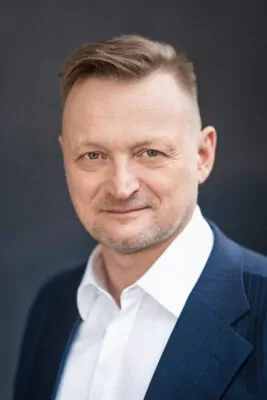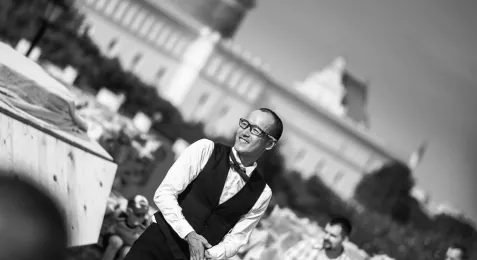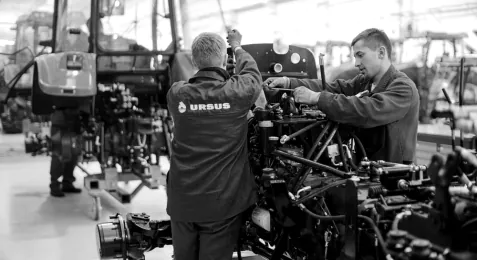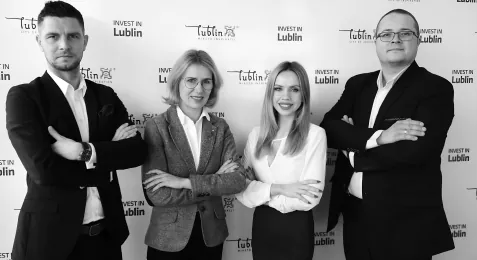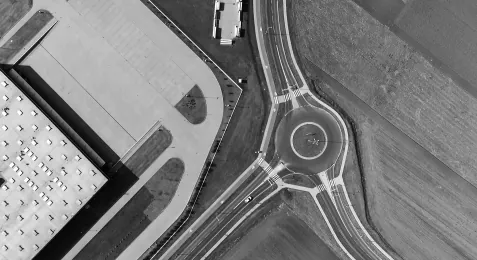Lublin Info Centre
Interview with Mieczysław Starkowicz, CEO of SYNTHAVERSE
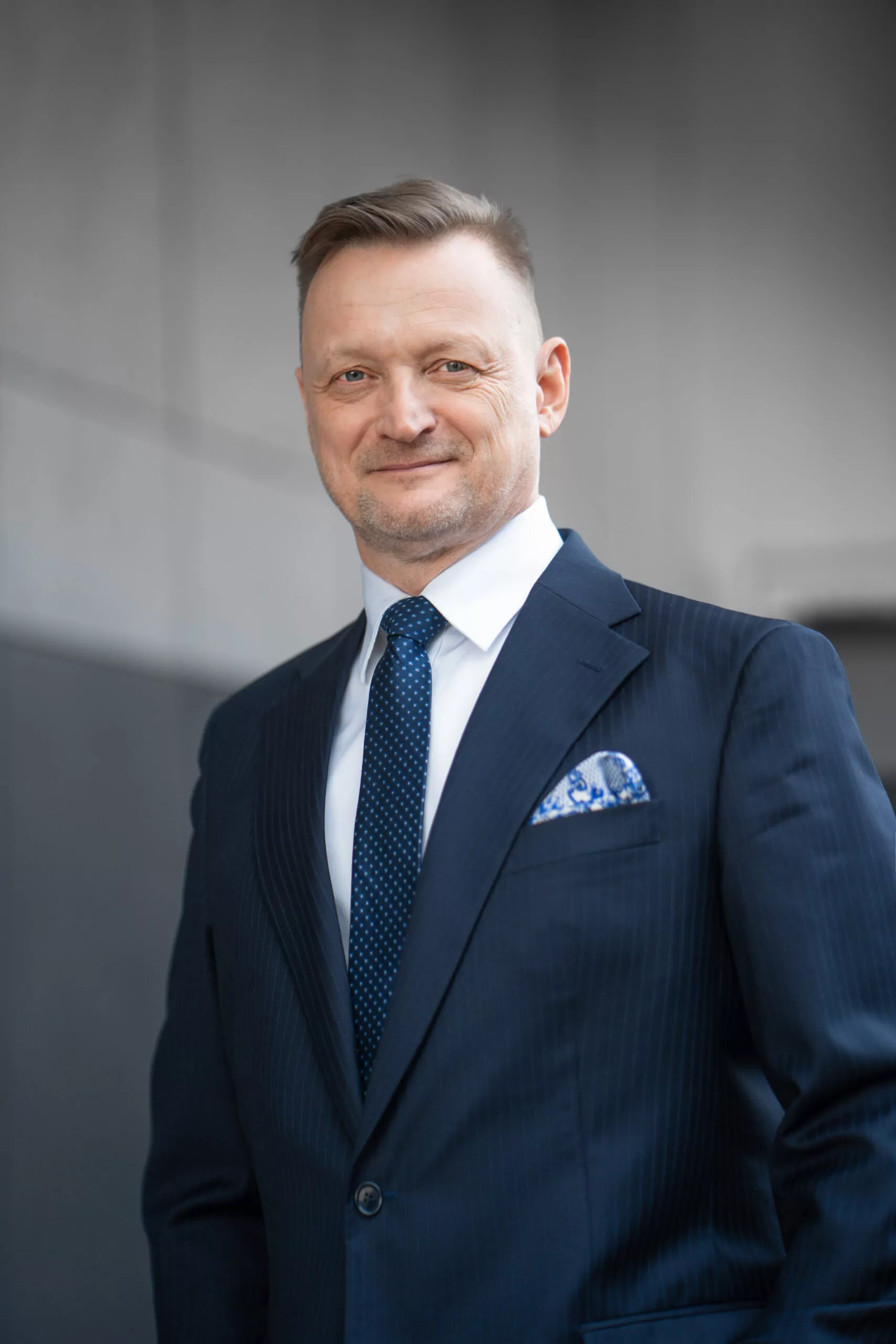
Your company is currently undertaking major investment projects in Lublin. What stage are you at right now?
We are in the final stages of completing two large investments with a combined value of nearly 200 million PLN. The buildings have already been handed over, and we have obtained occupancy permits. However, in the pharmaceutical industry, there is typically a period of about 1.5 to 2 years between obtaining an occupancy permit and the actual start of production. During this time, it is necessary to classify the buildings according to pharmaceutical standards, conduct inspections by the Chief Pharmaceutical Inspector, and obtain GMP certifications.
Our company is currently at the forefront of the global biotechnology industry. With two state-of-the-art facilities and a technological base that we modernized 2–3 years ago, along with ongoing transformations, we rank among the top three leading global manufacturers. In the biopharmaceutical market, we stand out alongside two major players – the American company MSD and the German company MEDAC.
Our new investment in Lublin is one of the most significant and advanced in Poland. In the production of oncology drugs, we use bacterial cultures, which makes us a unique player in the market. Globally, only two companies specialize in bacterial cultures, and three produce drugs in this way, giving us a leading position worldwide in this specific segment.
You often emphasize the advantages of Lublin as a location for investment. You are an ambassador for our city in the international business community, despite not being originally from Lublin. You have spent many years of your professional career abroad, with Barcelona being your last place of work before coming to Lublin.
Thanks to its location and proximity to airports in Lublin and Warsaw, as well as many other advantages, the city of Lublin plays a strategic role in our company’s marketing, attracting numerous visits and interest from our clients and partners.
We host visitors from distant countries such as Canada, the USA, and Brazil, for whom it is often their first visit to Poland. They are always very positively surprised by the charm of our city. They are impressed by its safety, cleanliness, and the variety of its culinary offerings. Additionally, we work with English-speaking guides from Lublin who provide our foreign guests with a unique insight into the city’s history and attractions.
I believe that Lublin has a lot to offer tourists. It is worth promoting Lublin as an attractive place for business and a pleasant city to live in, while also ensuring that overly intensive tourism in the future does not disrupt everyday life, as has been the case in places like Barcelona or Krakow. Lublin has a chance to ensure sustainable development in this area as well.
Do the impressions gained from visiting Lublin translate into business decisions?
Absolutely. We have many business partners, for example, from Africa, who have decided to send their children to study in Lublin as well.
How is your cooperation with the academic community in Lublin?
We primarily collaborate with the University of Life Sciences in Lublin, where I serve as the Chairman of the Stakeholders’ Council. We often recruit our new employees from this university. We also hire middle and lower management staff locally in Lublin, while for senior management positions, we often have to rely on employees from other regions of Poland. However, since Lublin is a very attractive city to live in, employees decide to relocate from cities like Warsaw, Poznań, or Szczecin. Some of them settle here permanently with their families, while others commute to work and return to their families on weekends.
We also collaborate with the Medical University of Lublin’s Faculty of Biomedical Sciences, where we conduct clinical research. This collaboration allows students to gain practical knowledge and experience in the field of biomedicine.
You have your own Research and Development department.
Our R&D department is located in a newly established building, and we are making significant investments in it. We have assembled a team of specialists focused on developing new products. Due to commercial confidentiality, I cannot reveal the details, but we are working on new molecules. We leverage our experience and modern technologies as a platform for these innovative and highly needed products, which are currently in short supply globally. We have managed to overcome the high technological barriers that were previously an obstacle, allowing us to move forward. It’s important to note that pharmaceutical development is a long process – from the inception of an idea to the market launch of a product, it can take anywhere from 7 to 10 years. If we started work two years ago, we can expect to see the first results in 3 to 5 years.
What does cooperation with the local scientific community look like in this area?
Our company has an Expert Council that supports our research and development activities. However, to ensure our projects have a global reach, collaboration with other scientific communities outside of Lublin is also necessary. In the context of clinical research, Poland provides an excellent base, mainly due to the still considerable availability of candidates for studies.
What is the age range of employees in your company? How do you recruit new employees?
The average age range of our employees is between 40 and 50 years old. For senior management, the range is from 40 to 45 years.We recruit new employees through participation in annual job fairs organized by universities, where we present our job offers and opportunities for cooperation. We are also actively involved in organizing student internships and post-graduate traineeships, which allows us to attract young, motivated candidates. As a company, we compete to some extent with the food industry, which is also very strong in this region, where some graduates are focused on food technology. Nevertheless, our company is often the first choice for biotechnology graduates.
How do new technologies affect employment in your company?
We currently employ 240 people, with the potential to increase to 300. A key aspect of the changing employment structure is the transition from older employees nearing retirement, who were less familiar with new technologies, to younger, highly qualified specialists.
Our processes are becoming increasingly automated, which raises the demand for employees with advanced technical skills and specialized qualifications. We hope that Lublin’s biotechnology schools will be able to provide us with such employees in the future.We hope that over the next 10 years, Lublin will become a center of biotechnological innovation, and that the experience gained by our employees in other organizations, including those abroad, will return to the city in the form of new, dynamic startups. In this way, we aim to contribute to building a strong local ecosystem that will drive the development of the biotech industry in the region, partly through cooperation with partners in the Lublin Medicine Cluster. My experience with innovative clusters in Barcelona, where we collaborated with the University of Catalonia, shows how important good cooperation is, including with local government and academic institutions.
